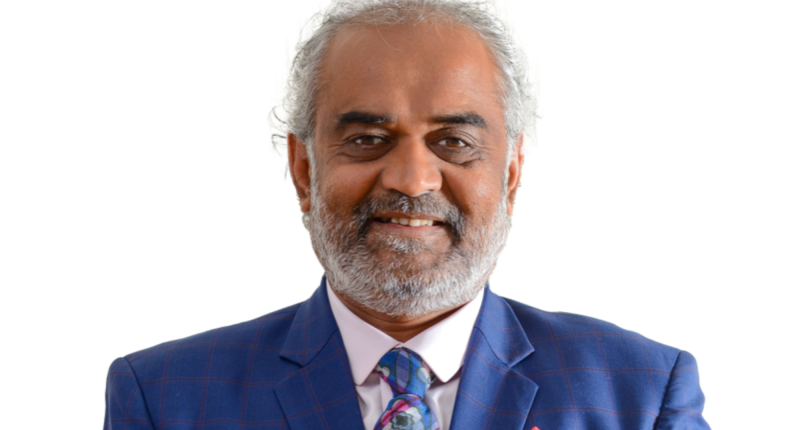Opinions expressed by Entrepreneur contributors are their own.
You’re reading Entrepreneur Middle East, an international franchise of Entrepreneur Media.
As the UAE gears up to host 28th edition of the Conference of the Parties of the United Nations Framework Convention on Climate Change (COP28) at the end of the month, I would like to draw your attention to a documentary that will be presented by the Dholakia Foundation, the philanthropic arm of Hari Krishna Exports, an Indian family business, on their water conservation projects, as well as afforestation and environmental action. The story traces the journey of the organization’s founder, Savji Dholakia, towards creating 140 lakes, and increasing access to water in rural India.
As someone who has always been fascinated by unique stories of family businesses, I have watched Hari Krishna Exports through its growth journey over the past decade. Hari Krishna Exports, a diamond cutting and polishing company founded in 1977, is one of the world’s leading diamond exporters. Dholakia, a self-made first generation founder, is renowned for his entrepreneurial spirit as well as his unwavering commitment to social causes. Despite facing early setbacks, he built Hari Krishna Exports into a global diamond empire, employing thousands, and empowering communities. His philanthropic endeavors, including planting millions of trees and constructing water conservation projects, have earned him the prestigious Padma Shri award (India’s fourth-highest civilian award), solidifying his legacy as a beacon of hope and inspiration.
 Source: Hari Krishna Exports
Source: Hari Krishna Exports
However, when Dholakia and I sit down to unpack what makes a family business successful and how he found his calling towards social impact, I couldn’t help but be amazed by the clarity of his thought and his sheer grit in charging ahead. Dholakia and Hari Krishna Exports will also feature as one of the 12 family businesses I will engage with deeply in my upcoming book, Stories of Grit from Indian Family Businesses.
What is your secret to mentoring the next generation, I ask. Time spent with them, says Dholakia, determinedly. He always takes at least one of his nephews with him as he attends key engagements, global conferences, or important visits. To him, the essential ingredient is mentorship, bringing the next generation along for them to firsthand experience for themselves the grit it takes to see a challenge through. Grit will test your patience, says Dholakia, and so will Mother Nature. That’s why Dholakia approaches his climate goals with the same grit and patience as he relies on for his business goals.
Related: Charting The Future: The UAE Emerges As A Leader In Sustainable Infrastructure Development
Under Dholakia’s leadership, the Dholakia Foundation and Hari Krishna Exports have implemented various initiatives aimed at preserving and replenishing water resources in India’s drought-prone regions. Dholakia noted how he has been successful in his business because he has maintained tremendous control over all the various elements of decision-making in his business, and how he wants to bring that very skillset, that understanding of every level of how business operations are conducted, to having meaningful impact in the environment. Indeed, Dholakia says that he wants to play an instrumental role in the way that resources, especially financial resources, are deployed for meaningful impact. According to him, the best return for his philanthropic investment is by using it towards combating climate change.
 Source: Hari Krishna Exports
Source: Hari Krishna Exports
Water conservation is a pressing issue in India, where water scarcity is a significant concern, particularly in regions experiencing water stress. The Indian state of Gujarat has experienced unprecedented cycles of draught in the last decade. For Dholakia, growing up in rural Gujarat, economic success was directly linked with access to water. He first-hand witnessed that water can not only transform lives in terms of improving health and hygiene, but also in terms of economic opportunities for farming and irrigation in rural India. To him, it was obvious that social impact endeavors had to be linked to combat water scarcity.
 Source: Hari Krishna Exports
Source: Hari Krishna Exports
With this clear vision from their leader, the Dholakia Foundation set out to create more than 140 lakes in drought-stricken areas of India. These lakes store 13 billion liters of water, which create direct and indirect benefits for 250,000 farmers. The creation of lakes has provided access to clean drinking water for thousands of people, improved agricultural productivity, and enhanced the livelihoods of local communities. Plus, these lakes have not only provided a reliable source of water for communities, but they have also helped recharge groundwater aquifers and revitalize the surrounding ecosystems. Recognizing the importance of trees in water conservation, the organization also planted over 2.5 million trees across 25 locations in Gujarat. Trees help absorb rainwater, reduce soil erosion and flooding, and improve overall water retention in the landscape. No wonder then that the UN Water Conference and the World Meteorological Organization have both lauded Dholakia’s commitment to create impact of this scale.
Related: What You Need To Know As The World Gets Ready For COP28 In The UAE
This article is from Entrepreneur.com









